North Texas landowners trying to stop a reservoir that Wichita Falls calls crucial
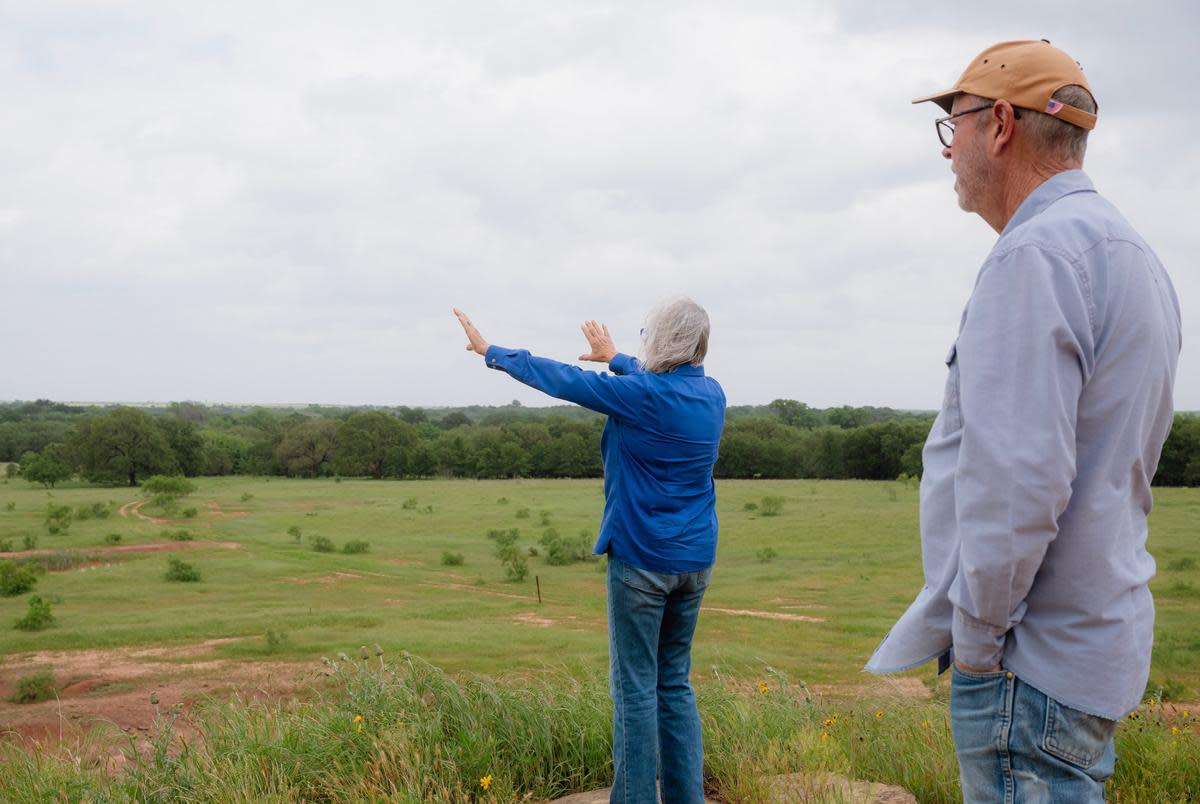
HENRIETTA — One rancher said the proposed reservoir would cut through her property and flood areas of her ranch she needs to graze cattle. Another said it would flood ancestral lands that have been in his family since the 1880s. Another said his kid’s childhood home, where many family memories were made, would be underwater.
They traveled to Austin last year to voice their opposition to a 16,000-acre reservoir that the city of Wichita Falls wants to build in Clay County, approximately 30 miles east of the city. City leaders have applied for a state permit, arguing that building Lake Ringgold is vital to help the city avoid running out of water during droughts, which climate change has made more common and more intense.
The Texas Commission on Environmental Quality, the state's environmental agency, will vote on the city’s permit on Friday. If the city is granted the state water rights permit from TCEQ, it would next need to apply for a permit with the U.S. Army Corps of Engineers; the city needs both a state permit and a federal permit for the project.
(Update: The TCEQ approved the permit on May 10.)
The seeds for the Lake Ringgold plan began about three years after Russell Schreiber took a job as the director of public works for Wichita Falls in 2008. A severe drought struck the area in 2010 and lingered for years, nearly draining the city’s two reservoirs: Lake Kickapoo and Lake Arrowhead. Schreiber faced the nearly impossible task of finding water during one of the worst droughts to ever hit North Texas.
“It was very devastating,” Schreiber said, remembering how Lake Arrowhead, the city’s primary water reservoir, and its other reservoirs came close to drying up.
When Wichita Falls hit a Stage 5 drought, the highest of the stages that’s considered a “drought catastrophe,” the city issued water restrictions banning all nonessential water use like refilling swimming pools, using sprinkler systems and washing cars.
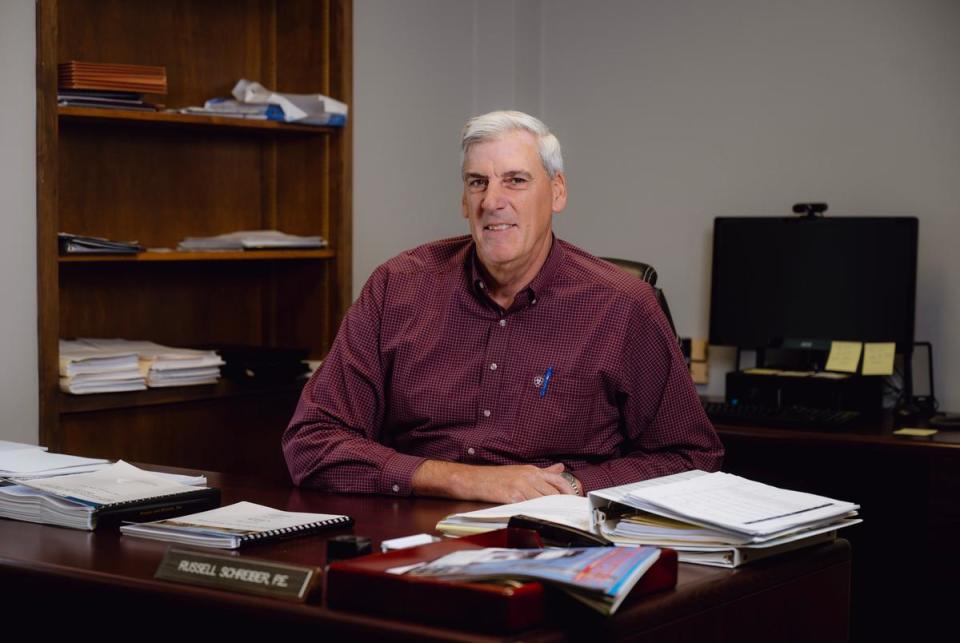
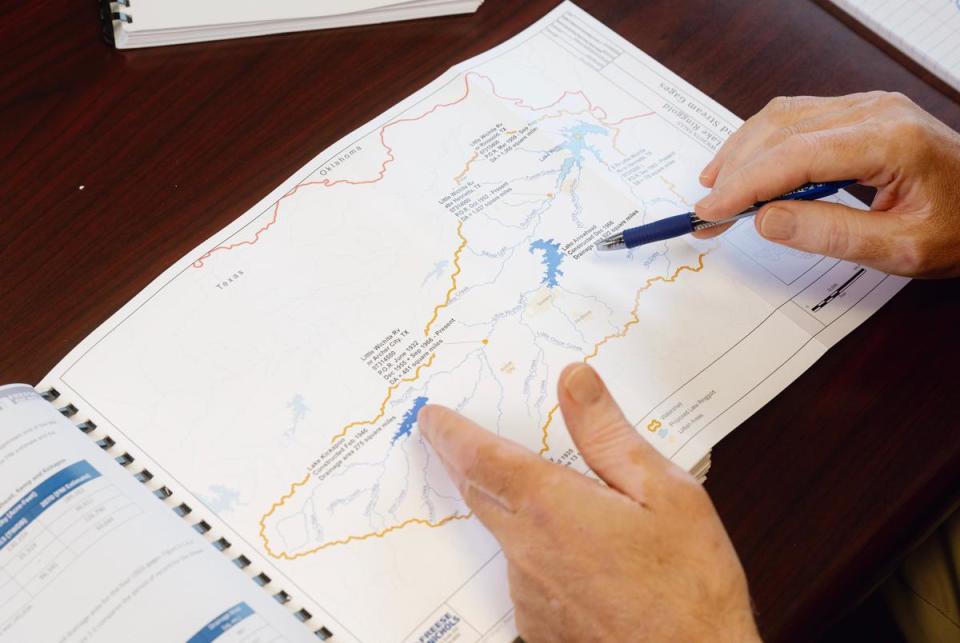
From July 2014 to July 2015, the city tried something new: direct potable reuse, a water recycling process that purifies waste and sewer water using a filtration system. The system allows the filtered water to be immediately used as drinking water.
Schreiber said at the time the city exhausted nearly every option to reduce water use, and managed to reduce the demand on the two reservoirs by 75%. But it wasn’t enough, and the reservoirs reached an all-time low of 20% of capacity.
This prompted city officials to dust off plans for a new reservoir that’s been considered since the 1950s.
“We're the only water supply for the whole North Texas region,” Schreiber said, referring to nearby communities like Olney, Burkburnett, Electra and a dozen others that get water from the same reservoirs. “And it's our job to ensure that there's adequate supply for this region.”
Reservoir project brings concerns from ranchers
After the drought finally ended in 2017, the city applied for a water rights permit with the state to build the Lake Ringgold reservoir.
The reservoir would be formed by building a dam on the Little Wichita River approximately half a mile upstream from its confluence with the Red River and downstream from Lake Kickapoo and Lake Arrowhead.
The reservoir would cost $443 million to build and could hold 65,000 acre-feet of water per year. (An acre-foot of water is enough to cover one acre to a depth of one foot.)
The city would need 24,000 acres of land for the reservoir site, which includes the lake, pump station facilities and transmission line to send water to treatment facilities in Wichita Falls. The city owns approximately 6,662 acres of the land needed for the reservoir, but would still need to acquire the remaining land through purchase or eminent domain. Opponents of the project say it would force more than 25 Texas ranching families to sell all or part of the land.
On Monday, the Little Wichita River’s current was aggressive. Much of Texas had experienced heavy rainfall the week prior, and the river’s waters ran red with sediment, surrounded by green bushes and trees. Swallows, a common songbird in the area, glided from underneath a bridge to the trees and back.
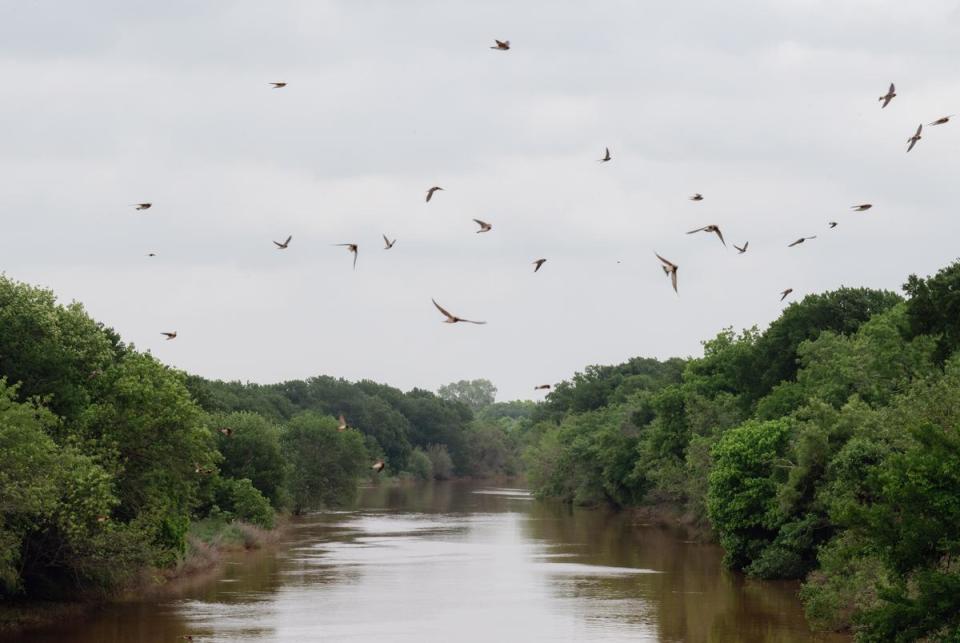
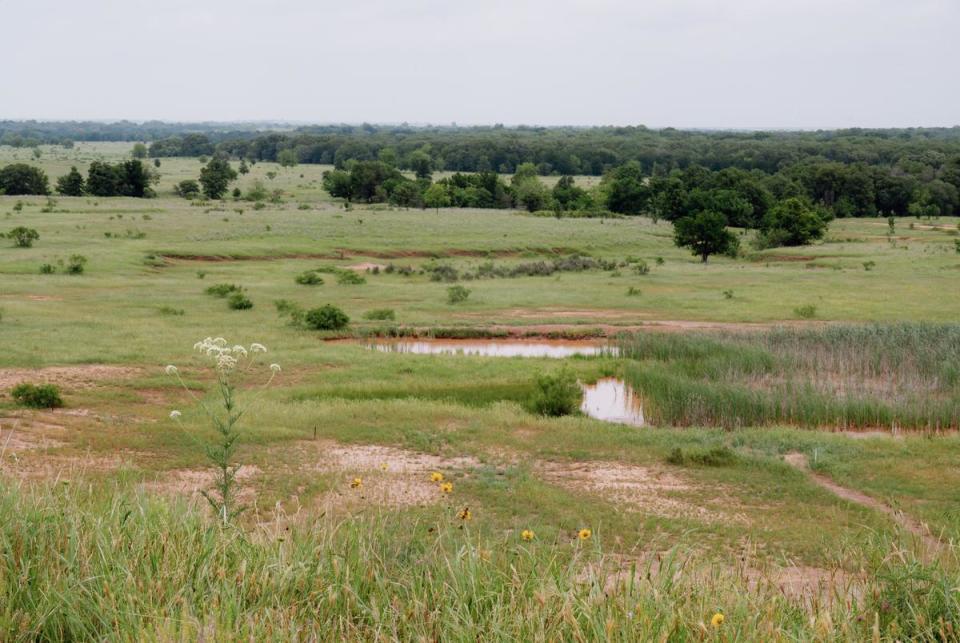
Less than 5 miles away, Deborah Clark, a cattle rancher in Clay County, said a portion of her land would be seized through eminent domain if the project is approved. Clark has spent decades raising cattle through regenerative agriculture, a practice that draws visitors to her ranch from around Texas to witness the dance between her livestock and the land as her herd of about 5,000 steers moves from one side of her 12,000-acre ranch to the other.
Clark says letting the cattle roam — rather than letting them graze on a single parcel of land — prevents them from putting too much stress on one area and promotes better overall soil health and diversity.
“We use the entire ranch, not just a little piece,” she said.
In December, she spoke against the project during a seven-day contested case hearing before a state administrative judge in Austin, along with many other neighbors.
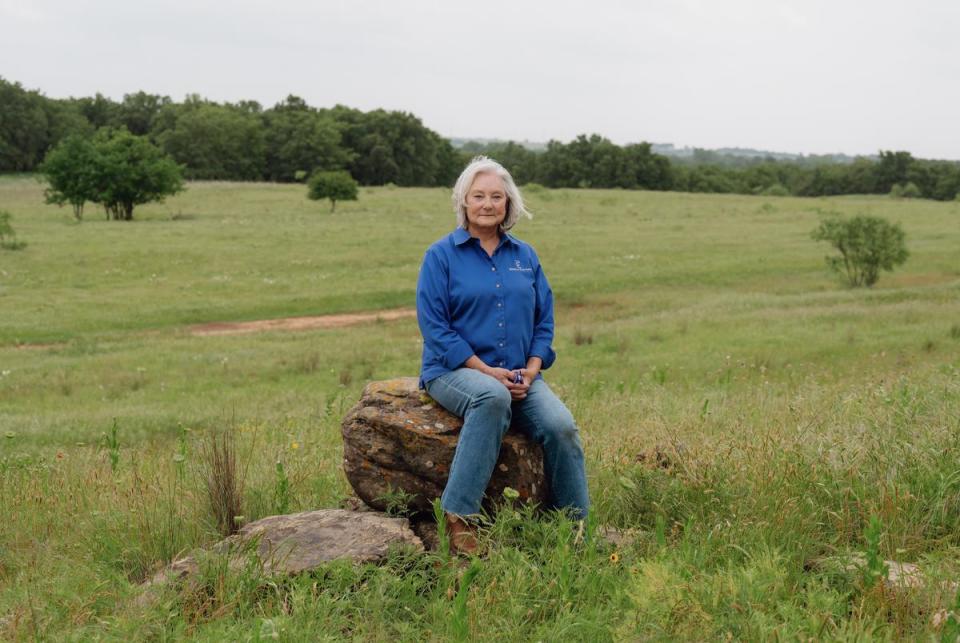
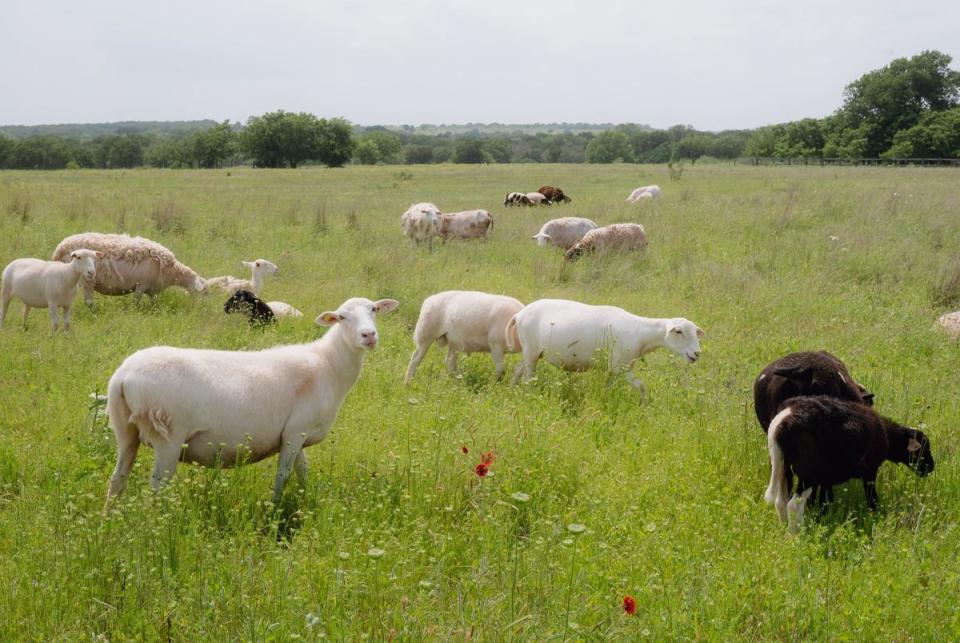
After the TCEQ issued a draft permit for Lake Ringgold in 2019, Clark and other local residents, along with environmental groups like the Texas Conservation Alliance, disputed that decision, which triggered the contested case hearing — a formal legal proceeding where parties present evidence and arguments regarding a specific environmental permit application.
At the hearing, they argued that Lake Ringgold would harm agriculture in the area and force landowners to sell the city their land.
After the hearing, the judge recommended that the TCEQ deny the city’s request to build Lake Ringgold, saying the project was too big for what the city’s shrinking population needed. While the city has projected a population increase to 120,000 by 2070, Wichita Falls' population has dropped from 104,000 to 102,000 since 2010, according to the latest U.S. Census.
Clay County rancher’s land could be taken and flooded
About 15 minutes away from Clark’s ranch, Shane Cody, 54, and his wife Casey, 51, stood in front of their country-style brick home with their dog Blue. It was a picturesque scene, the branches of two oak trees converging into an arc around them.
The couple has owned the 185 acres surrounding the house since 2005, but the land wasn’t always this taken care of, according to Cody.
When they bought it to build their dream home — something Cody had promised his wife when they married six years before — the land was filled with mesquite trees, which are not great for cattle. Cody knew he had to remove them because the couple wanted to start a family cow/calf operation.
Cody bought an old bulldozer with a grubber and got to work. For two years, he spent evenings and weekends removing mesquite trees, brush, and roots. He also planted Bermuda grass.
“We put our blood, sweat and tears into this place,” Cody said.
Cody taught their three boys to take care of cattle and hunt deer on the property. During the pandemic, when the world was in lockdown, he even installed a zip line behind the house.
“This is where the boys grew up and learned to be men,” Cody said.
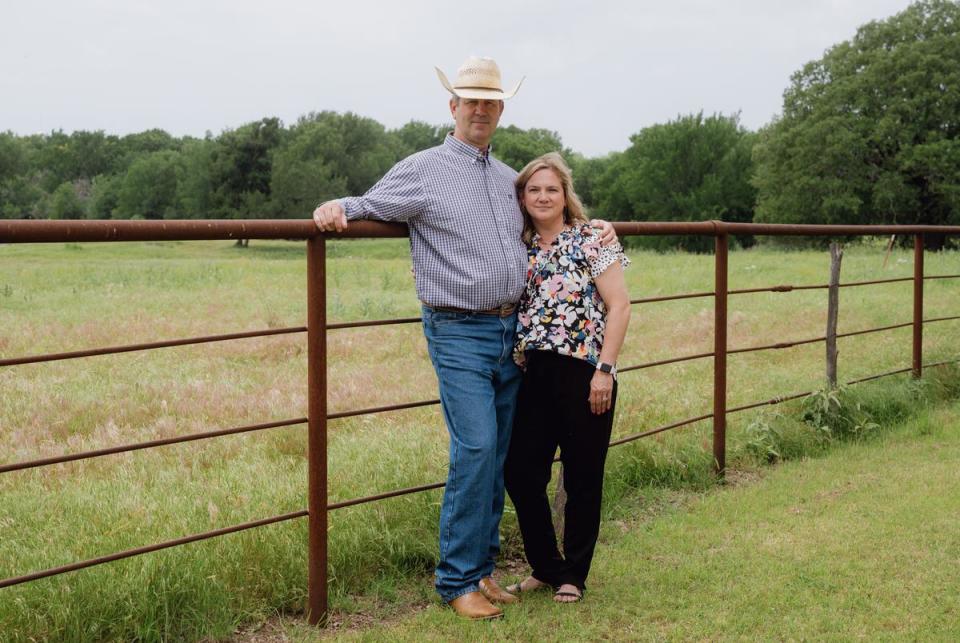
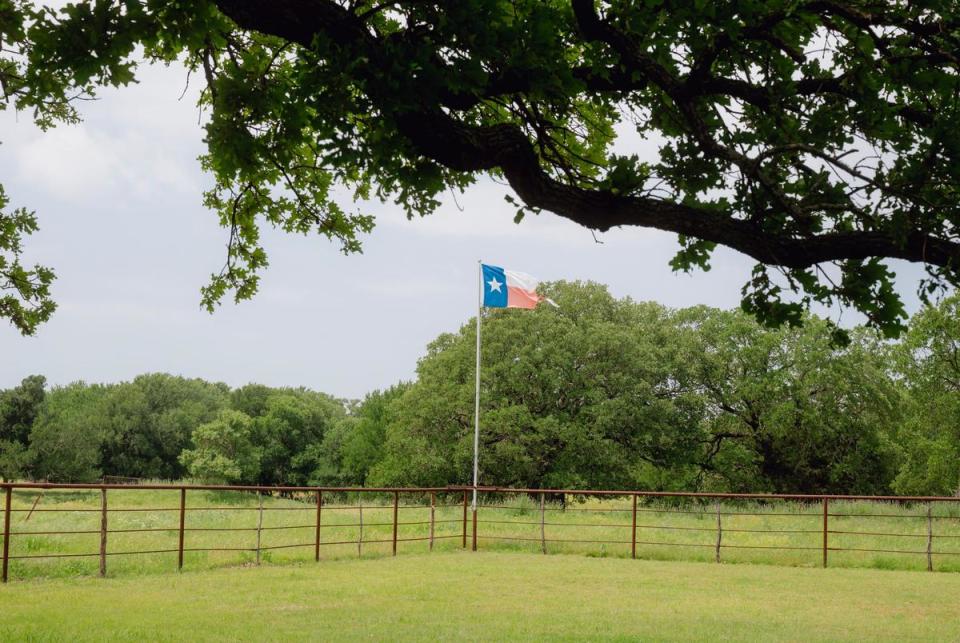
Cody said that now his work, livelihood and family memories tied to his home are at stake. In his office, he pulls out three manilla folders from a filing cabinet, takes out a map of the proposed Lake Ringgold and lays it out on his desk. If Lake Ringgold is built, it could come within feet of the back door of their home, inundating his backyard and, he fears, possibly cutting off their only way to escape the property during a flood.
Less than 20 minutes away, Brent Durham, 61, rode his four-wheeler through waist-high native tallgrass prairie. His property, which is approximately 5,000 acres, is blooming with red Indian blanket, yellow common sunflower and pink Indian paintbrush. Scissor-tailed flycatchers soared across the vast land.
One of the reasons Durham moved to rural Clay County 12 years ago was to experience the wildlife in the area. He raises livestock like cows and sheep on his property.
Part of the land has been in his family since the 1880s. Durham still has the old deeds. His mother spent part of her life on the land and so did his great-grandmother.
If Lake Ringgold is approved, approximately half of his property would be underwater.
“That’s why the lake is so sad. This entire pasture would be gone,” Durham said. “I’m pretty sure [the city] could care less. They don’t care, they're displacing all of us. ”
Durham has stage four colon cancer that has spread to his lung. He’s been on and off chemotherapy since 2021. He said he doesn’t have much longer to live, but he thinks of his teenage daughter who lives with him as well as his eldest son, who has a home on the property too.
“I'll be dead way before they construct the lake. But they want to stay here,” he said.
He said the lake would ruin his ability to make a living through grazing livestock.
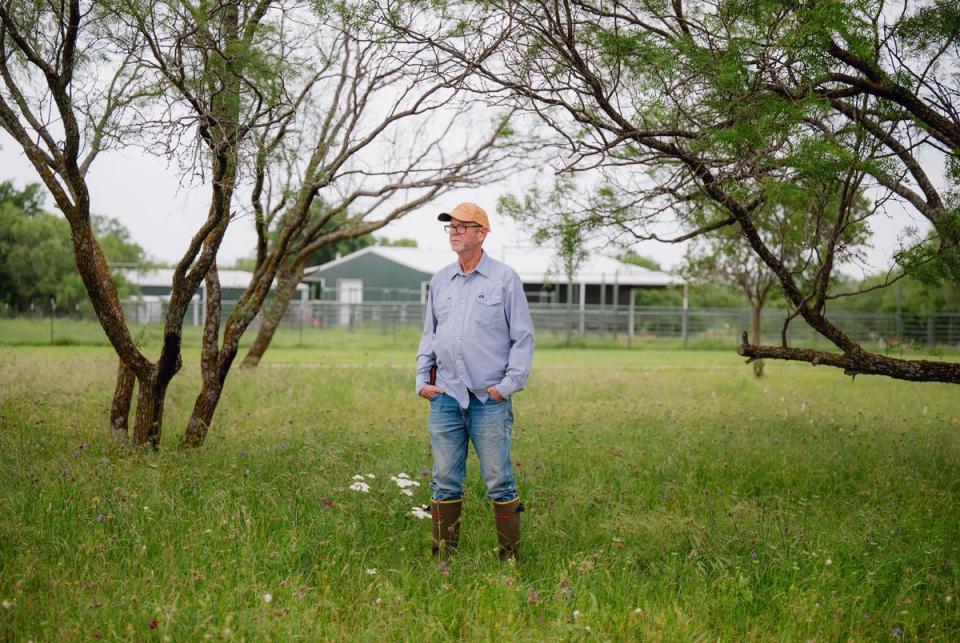
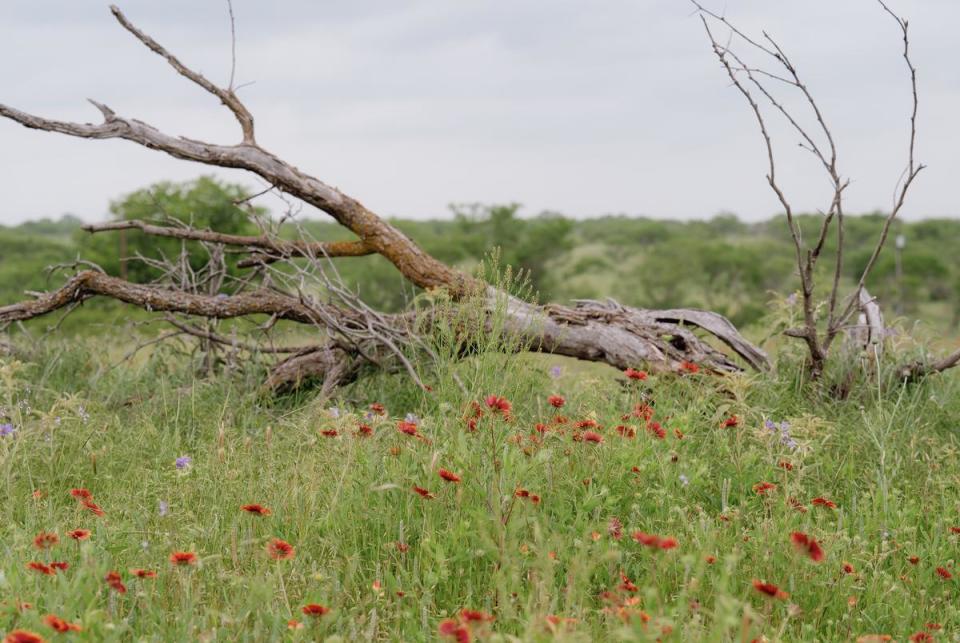
Meanwhile, back in the city, Schreiber, the public works director, defended the proposed reservoir project.
"If I've got two glasses of water half full sitting on the table, I've got a certain amount of water to use, right?” he said. “If I've got three glasses of water half full, I've got more water to use, right?
"That's the reason reservoirs are built,” he added. “They're built to store floodwaters for use later. You dam up the river and you create an impoundment that stores that water for people to use at a later time."
Disclosure: Arrow has been a financial supporter of The Texas Tribune, a nonprofit, nonpartisan news organization that is funded in part by donations from members, foundations and corporate sponsors. Financial supporters play no role in the Tribune's journalism. Find a complete list of them here.
We’ve got big things in store for you at The Texas Tribune Festival, happening Sept. 5–7 in downtown Austin. Join us for three days of big, bold conversations about politics, public policy and the day’s news.

 Yahoo News
Yahoo News 
